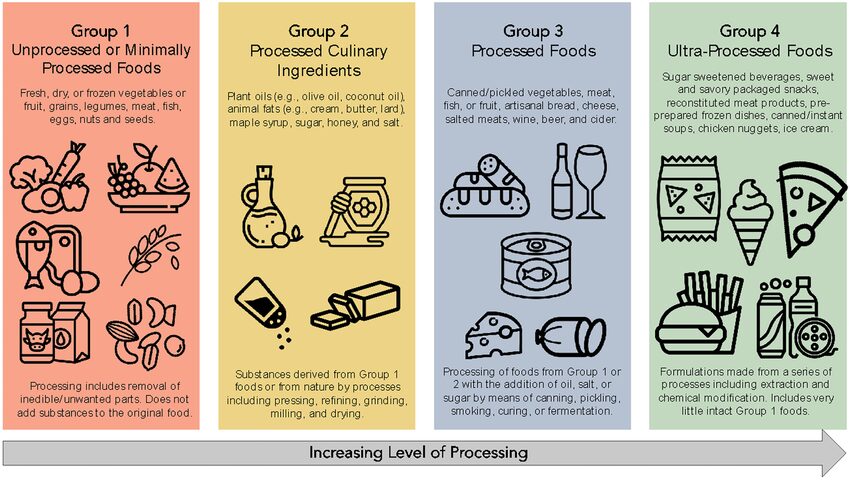Nova System ‘Fails’ to Capture Nutritional Value of Plant-Based Proteins, Study Finds
5 Mins Read
Plant-based proteins have come under heavy scrutiny for being ultra-processed, but current classification systems don’t fully reflect a food’s healthfulness, a new study has found.
Plant proteins shouldn’t be “demeaned” as unhealthy ultra-processed foods (UPFs), as their biochemical composition and micronutrient profile suggest otherwise, according to a new study.
Researchers from the University of Turku in Finland argue that current classification systems like Nova and Poti don’t sufficiently acknowledge the presence of compounds. Recognising the value of certain added ingredients – not just those that are harmful – is crucial, their research shows.
Published in the Nature Food journal, the analysis looked into the biochemical composition of 168 plant-based proteins made from a host of different base ingredients, as well as eight conventional meat products. They specifically explored the presence and availability of phytochemicals, which are bioactive compounds linked with multiple health benefits.
“Phytochemicals are a very large group of different compounds found only in plants, of which there are thousands of different types. On average, we consume 0.5-1g of phytochemicals per day, depending on our diet,” explained Kati Hanhineva, a professor of food development at the university. “However, until now there has not been enough research on how different processing methods affect these compounds.”
This latest study, though, contends that classifications like Nova “fail in several cases to provide a meaningful interpretation of the effect of processing”, suggesting that these systems often categorise foods containing beneficial bioactive compounds as processed or ultra-processed, “potentially misleading consumers into avoiding them”.
Nova classification of UPFs is limited for plant-based foods

The research particularly focused on soy products, including whole beans, tofu, tempeh, concentrates or isolates, and meat analogues. All of these finished products contained high levels of phytochemicals. When it came to isoflavonoids, vegan steaks were found to contain very little of these, but foods with lighter processing techniques, like tofu or soy chunks, retained a higher amount from the original soybean.
“Fermentation was highlighted as an important processing method in the results. We found that in tempeh, for example, these isoflavonoids were in a form that is more readily absorbed due to the activity of the microbes used in fermentation,” said doctoral researcher and lead author Jasmin Raita.
The problem, though, is that some fermented tempeh products fell into the UPF category in the existing classification systems, just like products made with extrusion. This highlights why UPF categorisation is limited when it comes to plant-based products, the researchers said.
“It is important to note that food processing should not be seen as exclusively harmful, as fermentation, for example, can even improve the nutritional value of a product,” Raita pointed out.
“The phytochemical compounds identified in the study may have health benefits, although they are currently not included in the nutrition labelling of food products,” added Hanhineva.
These can also indicate how well the original composition of a plant-based raw material has been preserved. “If there are no phytochemicals left in the product, it indicates that the product has undergone heavy industrial processing, after which the biochemical composition is completely different to that of the original plant used as a raw material. This perspective is not fully supported by current food processing classification systems,” she explained.

Not all processed foods are unhealthy, researchers say
The researchers explained how certain UPFs have been linked with adverse health effects, but not all. Studies have shown that plant-based foods, including those categorised as UPFs, are not associated with the risk of multimorbidity (or having two life-threatening diseases concurrently).
“It cannot be assumed that all processing makes a product unhealthy, because ultimately it is only the nutritional components of the edible product that matter, and how they are absorbed by our bodies. These determine the nutritional value and healthiness of food products,” said Ville Koistinen, a research fellow at the university. “Processing food is common, and even unprocessed food is often eventually processed at home, for example, by cooking,” he added.
Along these lines, the study described how the Nova classification bases the definition of UPFs on the processing techniques and added ingredients, and that of processed foods on the addition of elements like oils.
“Tofu and tempeh are categorised as processed, according to Nova. However, if they contain various flavouring ingredients or have been pre-fried, they are labelled as ultra-processed, even though consumers would probably cook and season them similarly at home,” the authors wrote.

The research builds on a familiar discourse in the food tech world. UPFs have come under heavy scrutiny from US health secretary Robert F Kennedy Jr, who has previously vowed to remove them from school lunches. Plant-based meat has been part of the criticism, but many nutritionists have warned against connecting processing with nutrition.
This latest study noted that under the Nova category, most UPFs span unhealthy convenience food products and sugary beverages – but this group also contains phytochemical-rich foods, for which there’s no scientific support to limit their dietary intake.
“Ideally, people would consume the presumably healthier UPFs, such as tempeh, but other factors, such as price and convenience, are important drivers for consumer decisions,” it stated. “Bearing these factors in mind, refining the current classification system could assist in guiding consumers to select nutritionally and phytochemically richer food products.”



